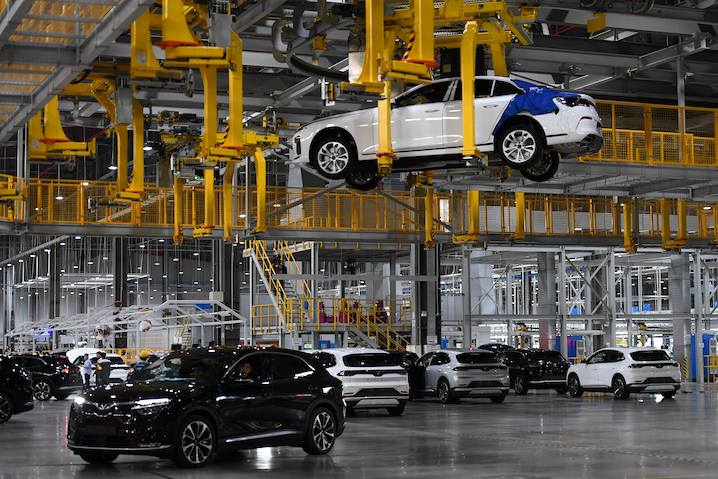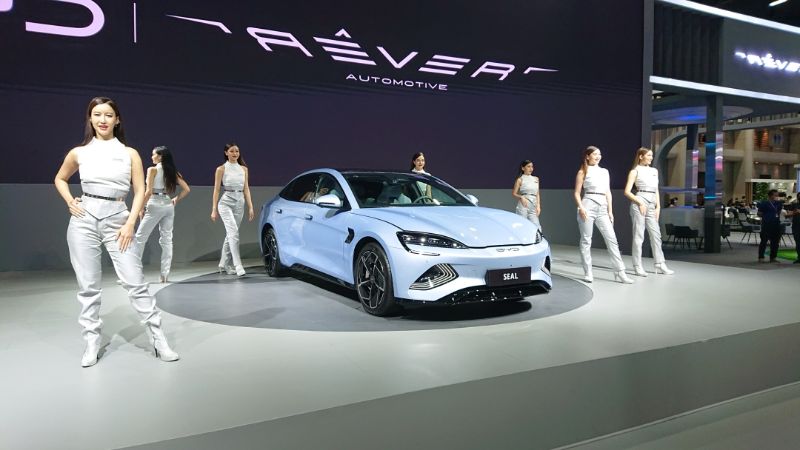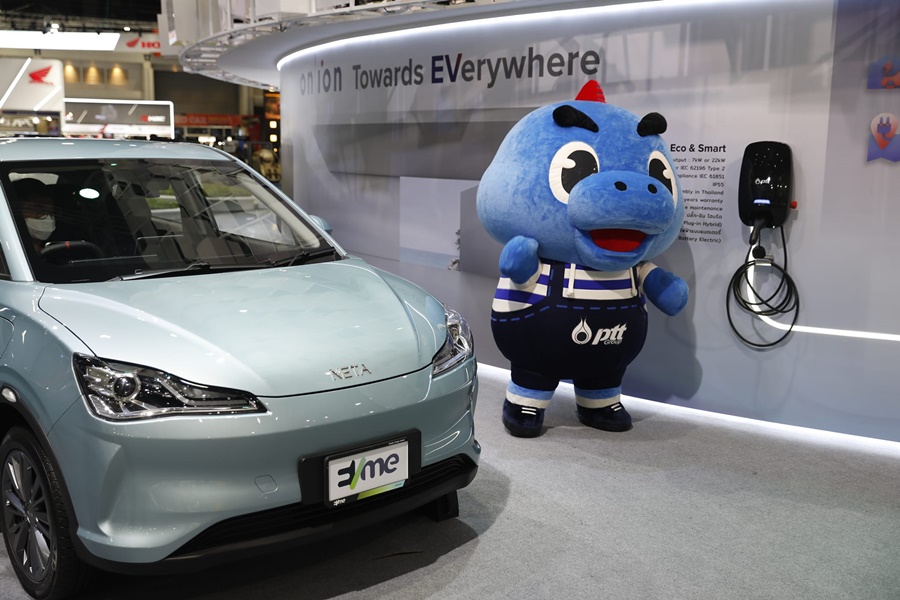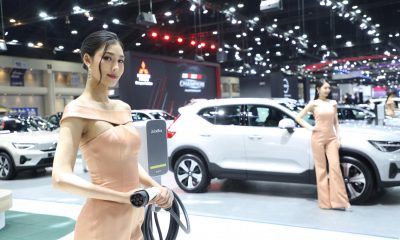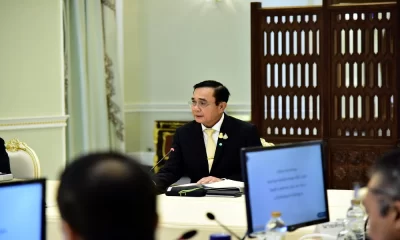Automotive
Thailand to Reduces Duties on Electric Vehicles, Cuts Subsidy to Bt100,000
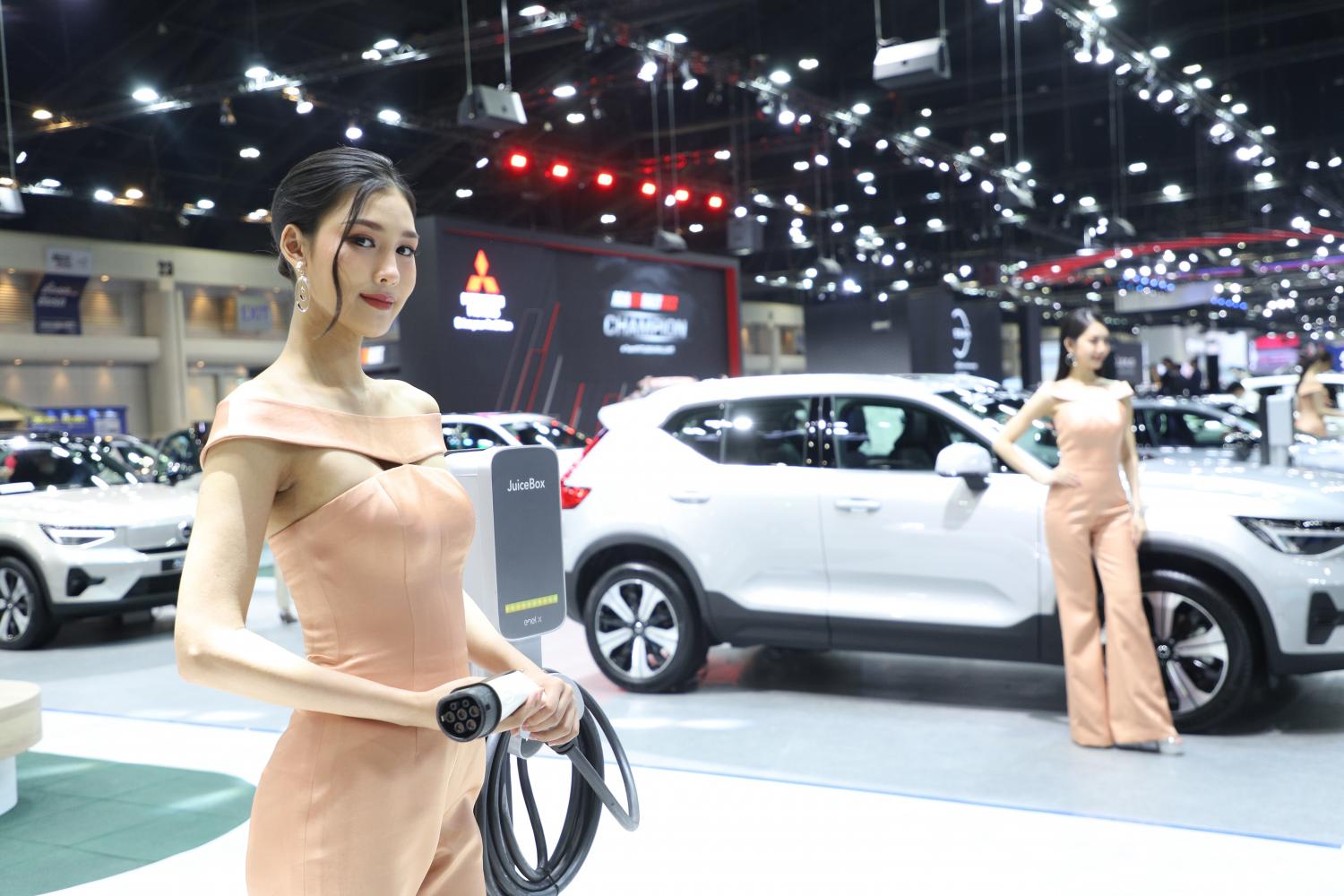
The Government of Thailand has approved a reduced subsidy package for its thriving electric vehicle industry on Wednesday, as the top regional auto hub seeks to maintain high EV sales momentum while balancing fiscal assistance, according to a government official.
According to Narit Therdsteerasukdi, Secretary General of the Thailand Board of Investment, the new package, which was approved by the National Electric Vehicle Policy Committee, will provide a subsidy of up to 100,000 baht (US $2,764) per EV car.
The initiative, which will begin next year and run until 2027, will also feature cheaper import duties and excise taxes, he said.
EVs have progressively gaining traction in Thailand, thanks to a government subsidy of up to 150,000 baht per vehicle. In the second quarter, the country accounted for over half of all EV sales in Southeast Asia.
“In the past 2-3 years after the government’s support, the rate of EV use in Thailand has greatly increased,” Narit was quoted as saying.
“So support from the government will gradually reduce in line with the situation, in order not to cause too much of a burden on the budget.”
According to research firm BMI, the new package will cost around 3 billion baht. Thailand plans to convert 30% of its annual output of 2.5 million automobiles to EVs by 2030.
Thailand’s tax cuts and subsidies have already attracted a slew of Chinese automakers, including BYD and Great Wall Motor, which have pledged to investing $1.44 billion in new production facilities in Southeast Asia’s second largest economy.
For decades, Japanese automakers such as Toyota Motor Corp and Honda Motor Co have controlled Thailand’s 10th largest auto manufacturing economy, using Thailand as a significant export base.
Aside from manufacturing, Thailand will offer incentives and tax exemptions to automakers who establish EV research and development centres.
“The government sees a need to continue promoting the EV industry and maintain the EV growth momentum in order to make Thailand the number one production base in the region,” he said.
China’s BYD Dominates Thailand’s Electric Vehicle Market
Meanwhile, BYD, a Chinese electric vehicle manufacturer, has taken Thailand by storm. Its most popular model, the Atto 3 SUV, already controls 31% of Thailand’s electric vehicle (EV) category, less than a year after its October 2022 launch.
This figure was significantly higher than the 9,200 new vehicles registered by the Chinese-made Neta V, and it surpassed the Tesla Model Y, which sold over 4,700 units with a 9% market share between January and September of this year.
BYD’s latest release, the BYD Dolphin, became the biggest seller in September alone, with over 1,600 units sold.
According to automotive journalist Nithi Thuamprathom, there are numerous reasons for BYD’s success in Thailand. “The price, the appearance, and the quality.”
BYD, a Chinese electric vehicle manufacturer, has taken Thailand by storm. Its most popular model, the Atto 3 SUV, already controls 31% of Thailand’s electric vehicle (EV) category, less than a year after its October 2022 launch.
This figure was significantly higher than the 9,200 new vehicles registered by the Chinese-made Neta V, and it surpassed the Tesla Model Y, which sold over 4,700 units with a 9% market share between January and September of this year. BYD’s latest release, the BYD Dolphin, became the biggest seller in September alone, with over 1,600 units sold.
According to automotive journalist Nithi Thuamprathom, there are numerous reasons for BYD’s success in Thailand. “The price, the appearance, and the quality.” It is comparable to Japanese non-electric SUV models,” stated Nithi, the owner of the website AutolifeThailand. “The confidence also comes from the media who gave it positive feedback after a test drive.”
Thailand has been the greatest automobile producer and exporter in Southeast Asia for at least half a century, owing to the presence of a large number of Japanese vehicle manufacturers throughout that time period. Thailand now has the largest market for EVs in Southeast Asia, with a 78.7% share of battery electric vehicle sales, trailing Indonesia and Vietnam by 8% and 6.8%, respectively, in the first quarter of 2023.
Thailand’s local car dealers are moving to distribute Chinese EVs as the situation shifts. At the same time, Japanese automakers are launching fewer or less frequently, according to Thuamprathom. According to the Federation of Thai Industries, about 9,000 new Battery EVs were registered in September, a 300% rise year on year.
MG Motor’s MG ZS was the first Chinese EV car to enter Thailand in 2019, followed by Great Wall Motor’s Ora Good Cat – famed for its cutesy, retro style – which created a public craze in 2021 with record pre-orders. BYD arrived in Thailand in 2022, unveiling its flagship model and establishing a $495 million manufacturing factory in the east that will begin production in 2024 for export to Southeast Asia and Europe.
Others are doing the same. Hozon New Energy Automobile, the Neta’s manufacturer, is constructing a plant in order to begin domestic production of the Neta V in 2024.
GAC AION, based in Guangzhou, recently announced plans to launch two car models in Thailand as well as open 50 showrooms nationwide by the end of this year, while Changan Automobile is expected to launch in Thailand before the end of the year, with plans to establish a 100,000-capacity vehicle plant in the works.
It is comparable to Japanese non-electric SUV models,” stated Nithi, the owner of the website AutolifeThailand. “The confidence also comes from the media who gave it positive feedback after a test drive.”
Thailand has been the greatest automobile producer and exporter in Southeast Asia for at least half a century, owing to the presence of a large number of Japanese vehicle manufacturers throughout that time period.
Thailand now has the largest market for EVs in Southeast Asia, with a 78.7% share of battery electric vehicle sales, trailing Indonesia and Vietnam by 8% and 6.8%, respectively, in the first quarter of 2023.
Thailand’s local car dealers are moving to distribute Chinese EVs as the situation shifts. At the same time, Japanese automakers are launching fewer or less frequently, according to Thuamprathom.
According to the Federation of Thai Industries, about 9,000 new Battery EVs were registered in September, a 300% rise year on year.
MG Motor’s MG ZS was the first Chinese EV car to enter Thailand in 2019, followed by Great Wall Motor’s Ora Good Cat – famed for its cutesy, retro style – which created a public craze in 2021 with record pre-orders.
BYD arrived in Thailand in 2022, unveiling its flagship model and establishing a $495 million manufacturing factory in the east that will begin production in 2024 for export to Southeast Asia and Europe.
Others are doing the same. Hozon New Energy Automobile, the Neta’s manufacturer, is constructing a plant in order to begin domestic production of the Neta V in 2024.
GAC AION, based in Guangzhou, recently announced plans to launch two car models in Thailand as well as open 50 showrooms nationwide by the end of this year, while Changan Automobile is expected to launch in Thailand before the end of the year, with plans to establish a 100,000-capacity vehicle plant in the works.

